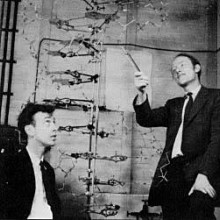Would you kill a person to save five others? Does religion evade morality by omission? And can you tweak people's motivations? Reporting on Morality and Motivation in Milan, with breaking hot neuroscience research presented at the FENS 2014 conference.
In this episode

00:00 - Are Moral Values Contagious?
Are Moral Values Contagious?
with Professor Ray Dolan, University College London
Would you kill one person to save 5 others? Does religion evade morality by omission and how can you tweak people's motivations?
Hannah - First up, let's question our morals. Imagine the scenario - there's a  runaway trolley barrelling down the railway tracks. Ahead on the tracks, there are five people tied up and unable to move. The trolley is headed straight for them. You are standing some distance off, next to a lever. If you pull this lever, the trolley will switch to a different set of tracks. Unfortunately, you notice that there is one person tied up on the side-track. So, you have two options. One, do nothing and the trolley kills the 5 people on the main track or two, pull the lever, diverting the trolley onto the side track or it will kill just one person. Which is the correct choice? I put this question to Ray Dolan, Professor of Decision Making at University College London.
runaway trolley barrelling down the railway tracks. Ahead on the tracks, there are five people tied up and unable to move. The trolley is headed straight for them. You are standing some distance off, next to a lever. If you pull this lever, the trolley will switch to a different set of tracks. Unfortunately, you notice that there is one person tied up on the side-track. So, you have two options. One, do nothing and the trolley kills the 5 people on the main track or two, pull the lever, diverting the trolley onto the side track or it will kill just one person. Which is the correct choice? I put this question to Ray Dolan, Professor of Decision Making at University College London.
Ray - What I would do, I could say, "Well, I'm going to do this..." but I might do something very different in the ease of the moment. Corollaristically, what I would do is probably do nothing. I think that is the case also for the majority. So, 5 people may die and the one person who you could've run over will survive. Whether we act or don't act is very much influenced by the consequence of our action and if the consequence of our actions or the outcome is bad, we are more disposed not to act than to act. So, it's a basic tendency. So, that would tell me that on average, the majority of people would do nothing. Now, I was brought up a catholic and we learned a distinction between two types of sins - sins of omission and sins of commission. It's an interesting distinction because here, I have a choice between omission - don't do anything, which is a minor sin and commission is a more active sin. So, I think the fact that that's there in sort of catholic, sort of ethical teaching reflects a wider kind of truth that to do things through action usually carries a greater social sanction than to do something through action. I think society at the movement, things you will not be blamed for doing nothing whereas if you switch the lever and run over somebody, somebody is going to blame you.
Hannah - Do we know much about what's going on in the brain whilst we're making these very difficult moral decisions?
Ray - People are beginning to study it and there are lots of surprising findings. We've been doing work on pain. We've got very counterintuitive findings. Let me give you just a brief summary and this is work done by somebody called Molly Crockett in the lab. She's been looking at the issue of: If I'm given an amount of money and I'm going to get pain, but I'm also given an amount of money, that same amount of money can buy you out of pain, the same pain as I'm getting that hurts you just as much as it hurts me. The question is, will I pay the same amount of money to avoid 1 unit of pain for myself as I would for you. It turns out and there's a robust finding that I'm more likely to pay twice or three times as much for you to avoid pain and for me to avoid the same level of pain. Now, that's the level of altruism that's totally unpredicted, totally surprising, and this is somebody we'll never ever meet again. So, there's no social consequence, no reputation to yourself. We make that quite explicit.
Hannah - That's quite a surprising finding as you say, so someone to be that altruistic to a stranger in such a capitalist society that we now live in. Can you explain why people seem to make those decisions in this experimental paradigm and whether it actually - do you think translates into real life?
to a stranger in such a capitalist society that we now live in. Can you explain why people seem to make those decisions in this experimental paradigm and whether it actually - do you think translates into real life?
Ray - I mean, that's always a question about whether these things translate outside a laboratory setting, very hard to do naturalistic studies. But I think the findings are so robust and so replicable across individuals that I think there will be a very strong residue. I think you have to involve almost something like an evolutionary argument here that in fact, there is a great advantage to us in general or in the long run being helpful and good to others. I think a lot of morality rises out of a framing of this truism within more formal notion of, 'you will go to heaven or go to hell' but this truths were around long before religion. If I help you, that's going to be money in the bank, sort of moral money when I need help in the future and I will see that it's to my advantage. I subscribe quite strongly to the view that in every moral act, in every altruistic act, there's also a selfish component. So selfishness is not such a bad thing sometimes because my selfishness will mean that I'm prepared to invest and invest quite heavily in the well-beings of others because their well-being may well be my well-being in the future.
Hannah - So, do we have kind of engrained in our neural circuitry a basic concept of karma that what goes around comes around and it may be that we give to a stranger but then another stranger will return to us something that we value.
Ray - These types or sort of deep causal type of explanations are very difficult to prove or disprove as you can imagine. All you can do is get sort of residues of evidence that would be supportive of that. I suspect that over the scale of evolution that the types of behaviour that have been selected for will incorporate these type of altruistic behaviours because they are in our own interest in the long term. So, you have to have a long horizon. So, I think they are probably wired into our better natures.
Hannah - Is there any evidence that other animals also exhibit this altruistic behaviour in societies?
 Ray - There's a very famous or a bit controversial experiment and I think involve experiment of the rats whereby a rat, given a choice of pushing a lever to get food or pushing a lever to diminish shock to a confederate who can see in an adjacent cage will actually choose to push the lever to reduce the pain. There are lots of anecdotal stuff as well in relation to dolphins for example. Interesting anecdotes of dolphins gathering in a group to keep a person afloat who's in danger of drowning in many, many stories like that. So, I think it will be peculiar if there was particular evolutionary pressures that were unique to humans. This must be unique to all sentient beings.
Ray - There's a very famous or a bit controversial experiment and I think involve experiment of the rats whereby a rat, given a choice of pushing a lever to get food or pushing a lever to diminish shock to a confederate who can see in an adjacent cage will actually choose to push the lever to reduce the pain. There are lots of anecdotal stuff as well in relation to dolphins for example. Interesting anecdotes of dolphins gathering in a group to keep a person afloat who's in danger of drowning in many, many stories like that. So, I think it will be peculiar if there was particular evolutionary pressures that were unique to humans. This must be unique to all sentient beings.
Hannah - Are there any groups of humans who don't seem to exhibit this altruistic type of behaviour that you've been studying? So for example, maybe particular patient groups or maybe groups of people with particular political views.
Ray - Yeah, so where do we start? The two party? The answer is almost certainly the case. So that any human trait, be it height, eye colour, skin colour, there's a range that applies also to behaviour - the degree to which you will startle ease of distribution. Some people will startle more easily, some people less. So, how do you recognise somebody who didn't give a damn about the pain? Who wouldn't pay a penny back to the experiment I described? They wouldn't pay a penny to reduce your pain, but they pay a lot to reduce their own pain. Well, that might bring up the picture of a sociopath or people who've got psychopathic behaviour who could be extremely cruel to other people. I think the interest of these experiments goes very much to the heart of those problems. How can we understand other people's behaviours when they seem so extreme? I've been working on this across a number of different domains and we're not beginning to think about applying in more sort of clinical context to try to solve these type of problems. So, if we just take something like psychopathy where somebody can be very cruel to others, totally disregard for their pain. Is that due to a biological problem such that they cannot represent the states of others? In other words, their sentient feeling states.
Hannah - Or is it just that they don't actually feel the negative value of pain? Is it that they're just not so receptive to pain?
Ray - They're very receptive to their own pain.
Hannah - But not to other people's.
Ray - So, it's very much to do with representations for others. And so, I'm going to talk a little bit about today is another study where we've done something that suggest that if I interact with you for example, and I have just learned about your values, and I have a set of values for that particular context myself. By interacting with you, my values will shift a little bit towards your values and this seems to happen implicitly automatically. And that's where I have to make decisions for me, make decisions for you. I have to learn your values in this context, but in the process of interacting with you, my valuation shifts towards yours. So, we've seen that behaviourally. We've got a neurobiological accounting of this. It happens automatically. It seems to happen in everybody. We tend to have a moral stance with people who are bad like that. But in fact, it may be that they are victims of a biological development that has (11:33) for whatever reason. That may not be just probably another genes. It could be something like their early environment, etc.
Hannah - And so, there may be a point where you can actually diagnose sociopathy more accurately, based on these types of experimental paradigms and also, the brain imaging studies that you're looking at in getting to grips with these very moral questions.
Ray - And perhaps early on, if you understand its biology, you might be able to come up with interventions that can actually change that because in the studies I've described, we see what I call 'plasticity'- things change on the basis of experience. You may be able to teach people understand this biological realisation. Then you're in a better position to come up with treatments that are rational and that are focused on what the problem is. What we have at the moment is a range of ad hoc treatments that generally don't work.
Hannah - And then I suppose also, if you're surrounded by people that have good - as they're perceived - moral values then you were just saying, your own moral values will shift more towards theirs. So, that's a form of therapy that might be available to those that maybe experienced early insult during their childhood or trauma which may have somehow tweaked or shifted their moral values in a direction that isn't quite so socially acceptable.
Ray - Yeah, I think that's right and so, we learn an awful lot. Not we learn through our own experience, but we learn hell of a lot through observing others, absorbing their behaviour, making inferences about what it is that accounts for their behaviour. That person doesn't do that because that can hurt somebody. And so, knowing what is the correct type of environment for people to flourish and to nurture people becomes very, very important because we can specify in a more precise way. And then if you take that into a therapy, you can then setup much better therapeutic environments because you know what the key ingredient is or do you know what it is, but you can actually monitor it as it goes along. You can have a measure of whether this is working or not. Right now, we don't have anything like that because we don't even understand what this core problem is in many of these situations.
Hannah - And going back to the point now of religion, do you think that as less people in Europe or in UK certainly are catholic or have a particular religion that they really believe in, do you think that's going to cause the moral degradation of society?
Ray - My own views, I don't think religion insulates you from bad behaviour. In fact, you can make a very powerful argument that religion has been the engine of an awful lot of terrible behaviour, both in the past and today. So, I don't think religion necessarily is a good soil for people to develop moral values despite the claims of religion. I would say the evidence from history is that it's had a very detrimental effect. I grew up in a very religious family. I grew up in a catholic family and does that make me a better person? I don't know. The one thing I did learn, those some very fine grained moral distinctions, fundamental back to what you asked me about at the beginning - the trolley car problem - I think at the age of 9 or 10, I was very aware of the distinction between sins of omission, sins of commission. So, I learned a very fine grain sort of way of thinking about the world. But knowing that, I'm not certain it have me to be a better or worst person necessarily. So fear of hell didn't ever stop me doing some very naughty things.
Hannah - Thanks to Ray Dolan, Professor of Decision Making and Neuroimaging at University College London.

15:27 - Reward and Punishment
Reward and Punishment
with Dr. Hanneke den Ouden at Radboud University, the Netherlands.
Next, we delve deeper into the brain to uncover punishment, reward, and motivation with Dr. Hanneke den Ouden at Radboud University, the Netherlands.
Hanneke - So, I was watching the football match last night on Dutch and so, the  Dutch were playing Costa Rica and when the Dutch finally won the penalty series, you could see them all kind of jumping around and then when you looked at the Costa Ricans, they were just like rooted to the spot. They were just not moving at all. That really nicely reflects that link between kind of good stuff and kind of being really active, and punishments, and being really inhibited, like being really like stopping your behaviour. And so, we actually study this process. We study how rewards on one and punishments on the other hand really can influence your behaviour in a way that you might not be aware of, unlike probably in the football match where they probably are quite aware of what is happening. So, I'll give you an analogy of the experimental design that we actually do in the lab. So, suppose that you're thinking about buying a house and you're going for a viewing. On the wall in the house, there's a picture and this picture happens to be the same picture as the one that was hung up in the ice cream shop in the neighbourhood where you grew up. So, you probably have a very, very strong positive feeling when you see this picture. You might not actually be aware of this. And so, you might actually end up being more likely to buy this house because this picture is hanging there. Even if you know that the owner is going to take the picture with him when they're leaving, the opposite actually might happen. Maybe there's a picture hanging on the wall that used to hang in the headmaster's office where you had to write your lines when you've been naughty in class. And so, you have a very kind of negative association with this picture. And so, you might actually not buy the house. You might really not be aware of this influence, that picture has on you. Again, the picture is going to go away with the owner, so it doesn't affect the value or shouldn't affect the value of the house to you. But instead, it does actually influence you. And so, what we do is we kind of create a very similar situation in the lab where we actually
Dutch were playing Costa Rica and when the Dutch finally won the penalty series, you could see them all kind of jumping around and then when you looked at the Costa Ricans, they were just like rooted to the spot. They were just not moving at all. That really nicely reflects that link between kind of good stuff and kind of being really active, and punishments, and being really inhibited, like being really like stopping your behaviour. And so, we actually study this process. We study how rewards on one and punishments on the other hand really can influence your behaviour in a way that you might not be aware of, unlike probably in the football match where they probably are quite aware of what is happening. So, I'll give you an analogy of the experimental design that we actually do in the lab. So, suppose that you're thinking about buying a house and you're going for a viewing. On the wall in the house, there's a picture and this picture happens to be the same picture as the one that was hung up in the ice cream shop in the neighbourhood where you grew up. So, you probably have a very, very strong positive feeling when you see this picture. You might not actually be aware of this. And so, you might actually end up being more likely to buy this house because this picture is hanging there. Even if you know that the owner is going to take the picture with him when they're leaving, the opposite actually might happen. Maybe there's a picture hanging on the wall that used to hang in the headmaster's office where you had to write your lines when you've been naughty in class. And so, you have a very kind of negative association with this picture. And so, you might actually not buy the house. You might really not be aware of this influence, that picture has on you. Again, the picture is going to go away with the owner, so it doesn't affect the value or shouldn't affect the value of the house to you. But instead, it does actually influence you. And so, what we do is we kind of create a very similar situation in the lab where we actually  show people pictures and in some cases, have them follow by a very nice sip of juice that we've given thirsty people and we show them other pictures and then we give them a sip of really nasty magnesium sulphate solution. And so, what we then do is we see how, when we show these pictures in the background of another game that people are playing when really, the picture shouldn't be affecting their behaviour, whether it actually affects their behaviour. And so, what we see is that when you show people the kind of nasty picture in the background, people are really inhibited in their responding whereas if you show people the nice picture, the one that's associated with the nice fruit juice, people actually activate their responding, so they get really active.
show people pictures and in some cases, have them follow by a very nice sip of juice that we've given thirsty people and we show them other pictures and then we give them a sip of really nasty magnesium sulphate solution. And so, what we then do is we see how, when we show these pictures in the background of another game that people are playing when really, the picture shouldn't be affecting their behaviour, whether it actually affects their behaviour. And so, what we see is that when you show people the kind of nasty picture in the background, people are really inhibited in their responding whereas if you show people the nice picture, the one that's associated with the nice fruit juice, people actually activate their responding, so they get really active.
Hannah - Are there different types genes or chemicals in the brain that somehow regulates how we can respond to these positive or negative kind of pictures or associations?
Hanneke - Yes, so that's exactly what we're interested in studying. What we've actually seen is that there is this one neurochemical called serotonin which seems to be particularly associated with how people respond to negative events, to punishments. And so, when you actually lower people's levels of serotonin, they actually become - in this case - more likely to buy the house. So, they're sort of disinhibited in their responding to an aversive stimulus.
Hannah - And serotonin is usually associated with - so people for example who may have clinical depression would be given serotonin selective reuptake inhibitors which would increase their amount of serotonin to try and make them happier. But your results are also showing that serotonin has this other flip side.
Hanneke - This is exactly kind of the confusion that drove our research because on the one hand, people who are depressed and who seem to be more sensitive to punishments have lower levels of serotonin or we think that they might do. On the other hand, people who have impulse control disorders, people who basically seem to not take into account that their behaviour is going to be bad consequences. So, they seem to be less sensitive to aversive outcomes. That was really confusing. How can two disorders that are both associated with low levels of serotonin on the one hand seem to be more sensitive to punishments and on the other hand less sensitive to punishment. And so, in another study, we looked at genetic differences in people's serotonin system and one of the serotonin genes. And actually, sure that people respond differently to punishment, depending on which version of this gene. Some people became really very much more sensitive to punishment whereas other people, when they just received a punishment, they just don't seem to mind quite as much and they just kind of carry on what they were doing for regardless.
Hannah - Do you think we'll ever get to the stage where we could maybe take some of Hitler's DNA for example and have a look at his serotonin genes and then find out whether he might be affected by this kind of punishment paradox?
Hanneke - So, that's an interesting question. There are definitely some kind of predispositions that we have and we have particular versions of the gene. But actually, for this specific gene, it's already known that the effects of the gene also very much depend on what's happened to you in your life. Life events, something really bad happening to you might for example cause your serotonin levels perhaps to drop. This is again quite speculative and that might actually interact with the genes that you have. And so, it will be very difficult to say and I don't think we'll ever get to a point where you can say, "Well, this is what somebody's genes are and therefore, they are this kind of person" but it really depends on the kind of environment that you're in which interacts and all kind of come together in your brain to make you act the way you do.
Hannah - Thanks to Hanneke de Ouden who researches reward and punishment at Radboud University, Netherlands.

21:11 - A Conscious Computer?
A Conscious Computer?
with Dr Joshua Brown, Indiana University
And closing today's exploration of morality and motivation, during the opening ceremony of the FENS meeting, I caught up with Joshua Brown. He's a computer scientist and engineer at Indiana University, America. He models what happens in our brains when we make a mistake and how we experience disappointment when we find ourselves in unexpected situations.
Joshua - In general terms, we form expectations everyday about the kinds of things that we think will happen based on what we know about the world. For example, if you are meeting with someone, you might expect certain things will happen and if they don't happen, you experience some kind of disappointment or likewise, if you are doing something and you make a mistake, you recognise that something has gone wrong because you first have an expectation about how things should work. and so, what we've done is to take a lot of neuroscience data about this phenomena of forming expectations and evaluating whether what happens is consistent with your expectations or whether there's a surprise. What we've built to model of is how the particular regions of the brain works.
So, that's the part that's just directly above the middle of your eyes and back a few centimetres. We built a model in a way that captures a lot of different cognitive neuroscience data, functional MRI, monkey neurophysiology, human electrophysiology that is the voltages off the scalp. We've developed a model that can account for all these different kinds of data. So, that's really the approach I've taken, rather than trying to sort of work out a proper definition of what is prediction, what is risk, what does it mean to have that experience of, "Oops! Something went wrong or something unexpected happens". Rather, what I've done is to simply look at the neural circuits and meet them on their own terms and ask, how do we get systems of interacting cells to produce the kinds of signals that we observed to be associated with forming predictions about what's going to happen and evaluating whether something unexpected happens? Where that's gotten us now is to a model - we have several models when more recently that accounts for a lot of the neuroscience data. It turns out that the mechanisms that we've uncovered are surprisingly simple at least conceptually and that there are really two parts to the process. And the first is forming predictions which in the simplest sense, the more strongly you predict a particular outcome, the more cell activity you have associated with that prediction. And then when it comes to detecting surprises, really, all we had to do was to take the difference, that is the subtraction between the predictions that were represented in the actual outcomes. And so, whenever you have a mismatch, then that difference is larger. And that larger difference constitutes this prediction error signal or the surprise. So, in a sense, what we found is that when we weighed through all these complexity and all these large corpus of neuroscience data, we can organise a lot of it with surprisingly simple principles.
Hannah - And they set in human brain conditions like for example, Schizophrenia  where scientists have theorised that there's a difference between prediction and actual reality which those differences might lead on to the delusions and hallucinations that these patients experience. So, can your computer model help to somehow help us to understand more about these patients' conditions and maybe come up with treatments?
where scientists have theorised that there's a difference between prediction and actual reality which those differences might lead on to the delusions and hallucinations that these patients experience. So, can your computer model help to somehow help us to understand more about these patients' conditions and maybe come up with treatments?
Joshua - That's a great question. The first thing I can say is that, we have in fact done some of that. So, a few years ago, we did a study of Schizophrenia and what we found is that when you look explicitly at how individuals with Schizophrenia form predictions and how they evaluate their own predictions, what we found is that they often get things backwards. The things that are less likely to occur, we found that their brain activity showed stronger activity. In other words, they were predicting more. And the things that were more likely to occur, they seem to predict less. Because those were sort of malfunctioning, that means that the outcome evaluations, that is the surprise that was detected was not really consistent with reality. And so, in that sense, we traced some of the dysfunction portion of the problem in Schizophrenia, back to a problem with learning how to accurately predict the world and what will be the consequences of your actions and of other people's actions. In essence then, part of the problem is, individuals with Schizophrenia have great difficulty learning how the world works and how they work within the world. We were able to see that at a neural level in a way that we can now account for with the same computational neural model. We've also done other studies with drug addiction, looking at how our model can make sense of what's going on in the brains of individuals who are dependent on drugs. What we find is again, that there are systematic differences in how people with drug addiction predict the consequences of their actions, the risks and also the rewards. And there are others with obsessive compulsive disorder for example. There seems to be an over prediction of outcomes and especially negative outcomes in way that's not consistent with reality. And so subjectively, people experiences kind of anxiety, the obsessions or the compulsions as if there was some bad consequence that was going to happen, and that leads to all sorts of behaviour that's either unnecessary or best inconsistent with the needs of the actual environment.
Hannah - So, your computational model has really taught us more about how humans behave and how we recognise particular errors that we might make in our own judgment. I don't know whether you've seen the film "Her" with Scarlett Johansson where she is an operating software queen who has lots of relationships with men. She must have some intuition about how they value things and how they notice reward and recognise errors in order for her to communicate with them within this film. Do you think that your computational model might help to develop software that's similar to that?
Joshua - I think if you look at how "Her" - whether we call it 'her', a computer or what, how that's depicted in the film, there's a huge range of cognitive processes. There are sort of processes related to empathy and social cognition and language. In one sense, what we've done is to isolate a small part of cognition. A small but I think important one. Now, every model whether I build it or someone else builds it, every models by definition of simplification. So, I'm certainly not going to claim that I have some model that's approaching something of complexity of 'her' but I think we have sorted out a piece of it. I think that with the kinds of things that we've developed and that other people have developed, I think it will be possible to put those pieces together into a larger functioning system. I think down the road, it's going to be increasingly possible to build systems that appear more human-like. In fact, nowadays, if you make a phone call to a large corporation, you're likely to speak to a robot essentially, a computer. Even in my lifetime, those processes have gotten a whole lot better. They're getting better at recognising speech, better at responding in a way that sounds more natural or human-like. Even recently, there's been talk of machines being able to pass the touring test and that is to fool people into thinking that the machines really are other people. I think we are approaching that point.
Hannah - That's all we have time for today unfortunately. Thanks to Ray Dolan,  Hanneke den Ouden, and Joshua Brown. I'll be back again tomorrow to investigate the importance of sleep. (snore) So, have you ever been up all night partying and then crashed out completely the next day? That's your brain sleep bank getting out of the red and making up your lost sleep credit. We'll discover the sleep brain bank in fruit flies...
Hanneke den Ouden, and Joshua Brown. I'll be back again tomorrow to investigate the importance of sleep. (snore) So, have you ever been up all night partying and then crashed out completely the next day? That's your brain sleep bank getting out of the red and making up your lost sleep credit. We'll discover the sleep brain bank in fruit flies...
Gero - Except if you don't keep them awake all night partying, it's more of a Zero Dark Thirty if you've seen that movie about torture in Iraq. It's more that approach for a sleep deprivation like the secret service would do.
Hannah - Poor fruit flies and they didn't even get the joy of a party to justify their sleep deprivation. Well, I'm off to enjoy Milan but I'll be back again tomorrow to wake up and open my mind. My name is Hannah Critchlow and this is a special Naked Neuroscience episode from the Federation of European Neurosciences 2014 Forum reporting in Milan.
- Previous Captive breeding
- Next Can blind chameleons change colour?










Comments
Add a comment